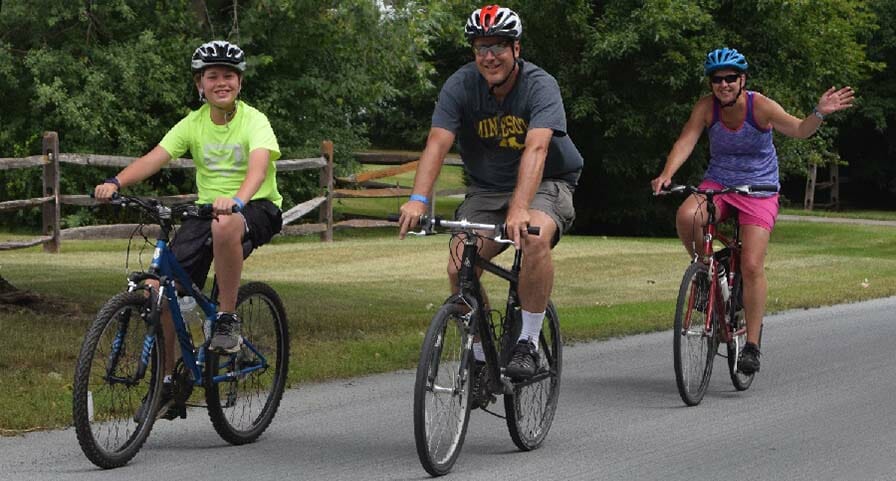Originally published Aug. 31, 2018 in The Daily Journal.
More than 13,000 Minnesota youth will benefit from the Minnesota Department of Transportation’s Safe Routes to School Bike Fleet grants that support pedestrian and bicycle safety education in Minnesota schools.
The New York Mills and ISD 197 school districts and Feeling Good Minnesota were awarded bicycle fleets, trailers and supplies to teach bicycle and pedestrian safety. The ISD 197 district includes West St. Paul, Eagan and Mendota Heights. Feeling Good Minnesota is a community collaborative of CentraCare Health. Awardees estimate the three fleets will be used in 32 different groups including schools, scout groups, 4-H clubs, parks and recreation and after-school programs.
“The bicycle fleet grants and pedestrian and bicycle safety education are key components that ensure youth in Minnesota are given the lifelong skills to walk and bicycle safely,” Dave Cowan, Safe Routes to School coordinator said.
He said since 1960, the rate of youth bicycling and walking to school has decreased from 48 percent to 17 percent, something Safe Routes to School programming and funding opportunities aim to reverse.
“The bike fleet will provide equitable access to a well-maintained fleet of bicycles and teach thousands of Central Minnesota youth every year how to safely walk and bike to school,” Kathy Geislinger, program manager at Feeling Good Minnesota said. “Safe Routes to School promotes physical activity and can increase walking and biking to and from school, ultimately leading to improved health for children and adolescents.”
Bicycle and pedestrian safety education include teaching Minnesota’s Walk! Bike! Fun! curriculum for children ages 5 to 13 in schools, after-school programs, and within community organizations.
Since 2005, MnDOT has awarded approximately $30 million yearly in federal and state funds to communities to support Safe Routes to School. The majority of the funding is for infrastructure projects.
In 2013, Gov. Dayton and the Legislature authorized $500,000 in general funds for Safe Routes to School non-infrastructure activities for the biennium. In 2014, this was increased to $1 million for non-infrastructure activities. An additional $1 million from the general fund was invested for infrastructure projects.
Seeking IHT Spirit System information?





